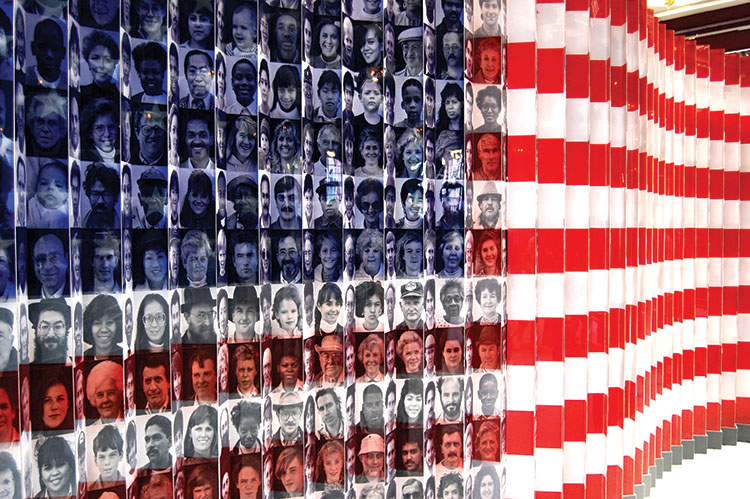The Benefits of an Ethnic and Racial Understanding of Behavior:


After reading about the relationship between patriotism and attitudes toward immigration, it is clear many people are becoming more curious about how we can gain a better understanding of the psychology behind racial/ethnic bias. Cynthia Willis-Esqueda is a Professor of Psychology at the University of Nebraska, Lincoln. Dr. Esqueda’s research interests are focused on the motivations for and cognitive processes about “race” and ethnic bias, particularly against America’s indigenous populations (Mexican Americans and American Indians). Since it is predicted that the United States’ ethnic composition will have no majority in just a few decades, it is important to be aware of the challenges that specific ethnic groups face today. Continue reading to learn more about the benefits of understanding of race/ethnicity and its impact on people from a psychological standpoint.
How did you first become interested in psychology?
As an undergraduate, I was interested in history and sociology. I became interested in Psychology after taking the introductory course and learning about the focus on cause and effect to understand human behavior. I think it is essential to entertain causal explanations for human behavior with an emphasis on social context.
Psychology can be very interdisciplinary in nature; perhaps particularly for you as an Associate Professor in Psychology as well as Ethnic Studies. How has your position in multiple departments informed your research agenda and/or teaching approach, if at all?
I could not envision conducting research in psychology without the benefit of an ethnic and racial understanding of behavior. My joint appointment has had a tremendous impact on my conceptualizations of behavior and provided an opportunity to bring ethnicity into research issues. The joint appointment has influenced my research and teaching on the effects of ethnicity on psychology and how psychological processes impact ethnicity.
You specialize on the impact of racial bias on various levels of one’s life. I am wondering if you can touch a bit on what the research is for our audience who may be learning about you for the first time.
There is a reason groups hold certain attitudes about other groups. There is a reason why disparities and prejudice exist in our society. My students and I focus our research on how ethnicity and race impact behavior at the individual, cultural, and structural levels. Consequently, the purpose of the research is to demonstrate how ethnicity and race are implicated in our daily psychological functioning, attitudes, and social behavior. In order to understand how ethnicity and race function in our society, we need to know the content and origins of current ethnic and race social groups. Race is not a biological construct; it is a social category. And, the concept of race has no permanent, concrete meaning. It has evolved, often to serve certain social and economic interests in the US.
Much of your recent research focuses on the legal impact of racial bias, how might more subtle forms of bias such as racial micro-aggressions impact the lives of people who are the target of that bias?
Racial micro-aggressions are the subtle, negative racial behaviors that can occur in daily life, which signal disparagement, prejudice, and ignorance. These micro-aggressions are a reflection of how race and ethnicity are embedded in our society. While racial bias in the legal system can have devastating impacts on individuals and their communities, for people of color micro-aggressions serve to heighten vigilance against race bias, create stress, and inhibit cognitive processing. Thus, micro-aggressions can heighten stress and stress related illness (Schmitt, Branscombe, Postmes, & Garcia, 2014). And, this connection may be a causal factor in the explanation of health disparities in the United States. Perceptions of race profiling or disparate treatment in the law can serve to act as micro-aggressions that may eventually lead to poor health outcomes.
 Anti-immigrant rhetoric and policy (the “travel” ban, in particular) have become very visible in the current political climate. How has your Race and Ethnic Psychology Lab began to investigate the individual impact and/or community impact of such rhetoric and policy?
Anti-immigrant rhetoric and policy (the “travel” ban, in particular) have become very visible in the current political climate. How has your Race and Ethnic Psychology Lab began to investigate the individual impact and/or community impact of such rhetoric and policy?
My students and I have examined the effects of immigration on immigrants’ conceptions of self, as well as the underlying reasons for negative attitudes about immigration. As part of the acculturation process (the process of adapting to a new culture after immigration), we have found immigrants begin to denigrate their own ethnic group, particularly in preferences for skin color and appearance. This can signal self-hate, and more research is needed in this area. In a series of studies, we have examined how different forms of patriotism predict perceived threats, and how this threat then predicts anti-immigration attitudes (Willis-Esqueda, Delgado, & Pedroza, 2017). For example, Blind Patriots (those who want this US to stay just as it is) are threatened by perceptions of a loss of employment and income, culture, and belief systems, and for Blind Patriots this threat predicts anti-immigration attitudes. For Constructive Patriots (those who want the US to continue to grow and become a better nation) threat is not predictive of anti-immigrant attitudes. In fact, the higher one is in constructive patriotism, the more one favors immigration. Furthermore, we have just completed a study (Willis-Esqueda, Hams, & Delgado, 2017) that demonstrated that Blind Patriots show bias against Mexican immigrants, but not European immigrants, and Constructive Patriots do not show this bias. Again, understanding the underlying causes for attitudes helps to explain why the rhetoric is focused on one ethnic group over another, and also how these attitudes can change over time (i.e., focus on certain groups and not others in historical time periods).
Is your Lab also investigating the impact of police/legal injustices involving African-Americans and/or Latinos? If so, how?
I am interested in how modern forms of ethnic and race bias influence legal outcomes for people of color, mostly indigenous populations (i.e., America Indians and Mexican Americans). We have conducted a number of studies that examine the influence of subtle forms of bias on legal decision making for Latinos. My former student and now colleague, Russ Espinoza and I have found that aversive racism explains biased decision making against Latinos. Aversive racism (Dovidio & Gaertner, 2007) concerns the fact that being labeled a racist is aversive – it is not acceptable to be a racist in most modern societies. However, racism is still practiced when a non-race related cue allows for biased responding. Consequently, with a series of studies (Espinoza & Willis-Esqueda, 2008; Espinoza & Willis-Esqueda, 2015; Espinoza, Wilis-Esqueda, Toscano, & Coons, 2015; Willis-Esqueda, Espinoza, & Culhane, 2008) we have demonstrated that Latinos face biased decision making concerning culpability and even the death penalty. Another current research project focuses on the effect of exoneration information on perceptions of Latinos, versus European Americans.
How do you feel the field of Psychology is handling the impact of racial/ethnic bias in the current political climate?
Psychological research has not always welcomed the incorporation of diverse populations and ethnic/race based principles of behavior. This is not that the field thought such research was not meaningful, but I believe many researchers (even today) are not familiar enough with ethnic and race differences and similarities to feel comfortable incorporating research methodologies and ethnic concepts into their own research agendas. Consequently, as more people of color come into academia and as more non-minority researchers share in the interest on race and ethnic issues, psychology as a field will become more diverse – and more accurate in accounting for human behavior. After all, people of color make up 30% of the population today, and by 2050 there will be no majority population of any one ethnicity in the US. It is imperative that we focus on issues of relevance for all US populations.

- Any new projects you can share with our readers?
My students and I have been working on a couple of studies that examine the effects of bias in culpability for minor infractions – things like jaywalking or parking tickets. While we have demonstrated biased decision making in death penalty cases, at the other end of the spectrum these minor infractions can produce tickets and unpaid fines which result in jail time. One of the issues in Ferguson, Missouri was the number of fines imposed on those of low income for minor infractions. People of color are more likely to live in poverty, and fines are hard to pay for people with limited or no income. Consequently, biases in the notion of who commits minor infractions and how these cases should be handled might inform us about race disparities.
We are also embarking on a series of studies that examines how ethnicity/race impacts the acceptability of child labor. Thousands of children in the US (mostly of Mexican descent) work in harvesting fruits and vegetables, and children can begin this work as young as 3 years of age. Wages are usually paid by the amount of produce picked, and there are no limits to hours worked. Schooling is disrupted, when families have to travel with the harvest. Initial studies suggest that the acceptability of this work differs for Latino versus White children (Hams & Willis-Esqueda, 2017). We are examining how conservative ideology predicts these differences in acceptability by race, and we hope to bring a focus on the social implications of unfair child labor for Latino children.
Thank you Dr. Willis-Esqueda for participating in this interview!




Responses